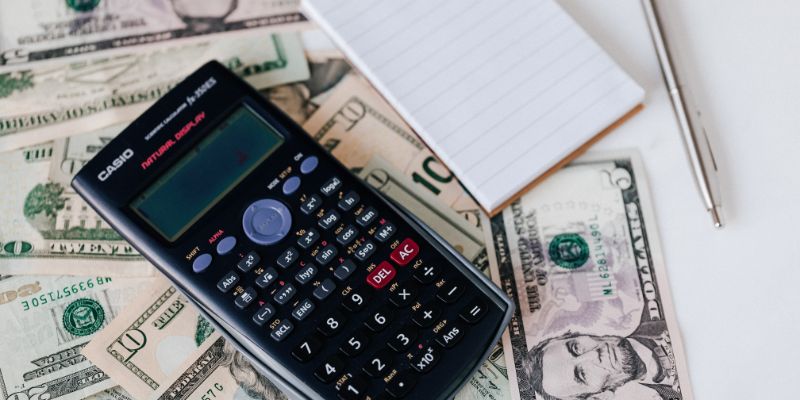How to Make Your Student Loan Payment: A Complete Guide
Susan Kelly
Nov 12, 2023
Even though student loans in the United States might help you pay for education, they can also become a huge financial burden once you graduate. The monthly student loan payment might become a thing of the past if you take advantage of methods that shorten the loan repayment duration.
Although paying off your student loans faster may require some sacrifices now, the benefits of doing so, in the long run, may be well worth the effort. Paying off college debts while saving for things like a housing down payment, retirement, or an emergency can be challenging.
However, if you have a strategy, you may eliminate your student debt while progressing toward your other long-term financial objectives. You may prioritize your debt repayment and cut costs using these five methods.

Ways To Make Your Student Loan Payment
Here are some ideas that may help you, as a student, pay off your debts sooner rather than later:
Debt Consolidation
If you're having trouble keeping up with many monthly payments for your student loans, consolidation into a single low-interest loan might be a great solution. A similar repayment approach that might help you save money and pay off your debt quicker is to combine your student loan, credit card, and other high-interest loan amounts into one lower monthly payment.
Determine if this strategy is appropriate for your situation by looking at the APRs for each sort of debt. The decision to consolidate or refinance federal student loans is not to be made lightly.
The terms may allow longer payback if you take out a new loan. Furthermore, you may lose eligibility for federal benefits like debt cancellation or payment suspension if you decide to refinance your student loans.
Increase Your Principal Payments
There is no prepayment or over-the-minimum payment penalty for federal student loans. However, there is a catch to prepayment: your student loan collector may use your additional payment to bring forward your due date, shifting the amount owed to the next month.
Paying off student loans faster is not possible by advancing the due date. It is because your late fees and interest will be paid in full before your extra payment is applied to your principal if you want to have any overpayments applied to your principal balance and your regular payment due date maintained.
In that case, you can do so by notifying your servicer in any of the usual ways. A single lump sum payment can be made on the due date, or you can make incremental payments at any time during the month. Both approaches can help you save a lot of cash.
Determine The Payout Amount
Find out how much you'll need to pay off your student loans if you plan on making the final payment this month or next. A current balance with your student loan servicer reflects how much you owe, but this may not be the same as the amount you need to pay off your loan.
It's the amount that has to be paid so that your loan is paid in full and your debt is settled. Any charges or interest that have accrued but not been applied to your account are eligible to be included.
Payoff amounts are often available on the most up-to-date account statements, which may be accessed through your loan servicer's website. That document should reflect your payback amount and an expiration date. If you prefer to speak to a human being, you may always phone the toll-free number shown on your servicer's website.
Pay Biweekly
You should consider making biweekly payments instead of monthly ones if you are currently paying off a student loan. It means that you should pay the equivalent of half of your monthly charge every two weeks. For instance, if your regular payment is $200, you may pay $100 every other week instead.
Because of how the calendar works, you'll make one full additional payment every year, even if your monthly payments won't change. Paying off your student loans faster with biweekly payments requires more work.

Follow The Regular Payment Schedule
Unless you request a different repayment plan, federal student loans are placed on a 10-year payback schedule by default. The basic federal loan repayment plan is the quickest option to pay off your debt if you cannot make additional installments.
Income-based repayment programs for federal loans reduce monthly payments but prolong the loan's repayment period to 20 or 25 years. Consolidating your student loans may also help you have more time to pay them back, up to a maximum of 30 years. Staying with the regular plan will get you out of debt faster than if you choose any of the other alternatives.
Contact Your Student Loan Servicer Proactively
Take the initiative to manage your student loan debt, whether from the federal government or a private lender. When you take out a federal student loan, the same company that handles your account and collects your payments also makes the disbursements you need while in school.
You may be dealing with several different loan servicers if you have more than one federal student loan. Since there have been several recent shifts in who handles servicing for federal student loans, it's important to keep track of who handles yours. You are expected to receive billing bills and other information from them in the mail.
Conclusion:
If you have student loan debt, it's important to research your choices for paying it back. It's best to do this before you graduate so you know which repayment option makes the most sense. Whether you choose an income-based repayment plan, review your financial situation every year to determine whether a different strategy will help you save more money in the long run on interest.







